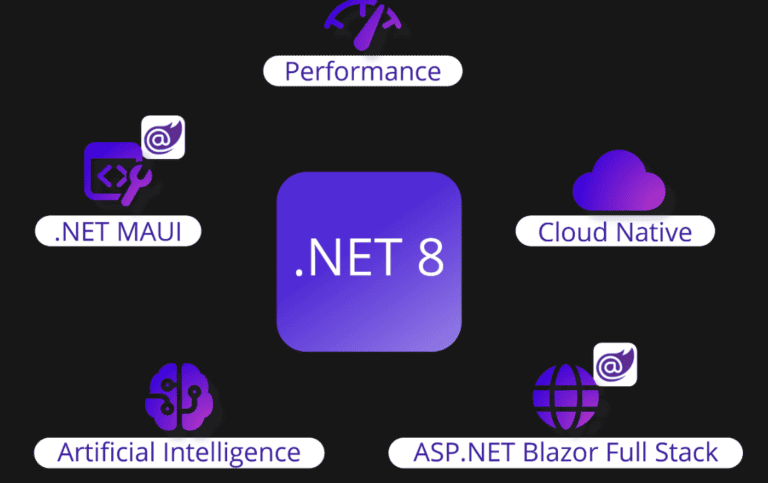Microsoft has made .NET 8 generally available. With this version, the tech giant will offer long-term support (LTS). While many innovations had already been unveiled in preview form, .NET Aspire is a genuinely new addition. With it, Microsoft aims to make developing cloud-native applications more secure and straightforward.
Because .NET 8 is an LTS version, this variant gets three years of support. Microsoft promises that with this update, developers can create “intelligent” cloud-native applications that handle heavy Internet traffic well.
Performance improvements
Following Microsoft’s GitHub offering, .NET 8 also gets AI-powered code generation. This is known as Dynamic Profile-Guided Optimization (PBO) and could improve application performance by up to 20 percent. It adapts to real-life use, according to the tech giant, making optimization
Performance is a key focus for .NET 8, with benchmarks showing 18 percent more requests per second in the JSON API and 24 percent more in Fortunes processing than .NET 7. The latter describes Partner Director Of Product, Developer Platforms at Microsoft Gaurav Seth as a good substitute for a real workload, such as addressing a database and server-side HTML rendering.
.NET Aspire
Along with version 8 of .NET debuts .NET Aspire, which focuses on cloud-native application development. A “curated set of components enriched for cloud-native” awaits developers, supporting through on-by-default telemetry, resiliency, configuration and health checks. Obtaining dependencies for cloud-native applications should remain as easy with Aspire on day 100 as on day 1, Seth said.
Aspire is available open-source on GitHub and will eventually integrate with .NET 8. As examples of Aspire-built apps, Microsoft has released a Blazor wep application, a back-end API and a Redis cache. AppHost offers the ability to run .NET projects as a distributed application, while ServiceDefaults can perform, among other things, the promised telemetry and health checks. This telemetry is based on OpenTelemetry standards, which Grafana and Splunk, for example, also use for their observability data.
At present, it is not yet clear what ambitions Microsoft has with Aspire. Devclass notes that the current preview version is focused on Visual Studio and Azure, but that this currently limits adoption among developers to Microsoft’s own platform.
Also read: Google Cloud serves enterprises with specialized GKE version
